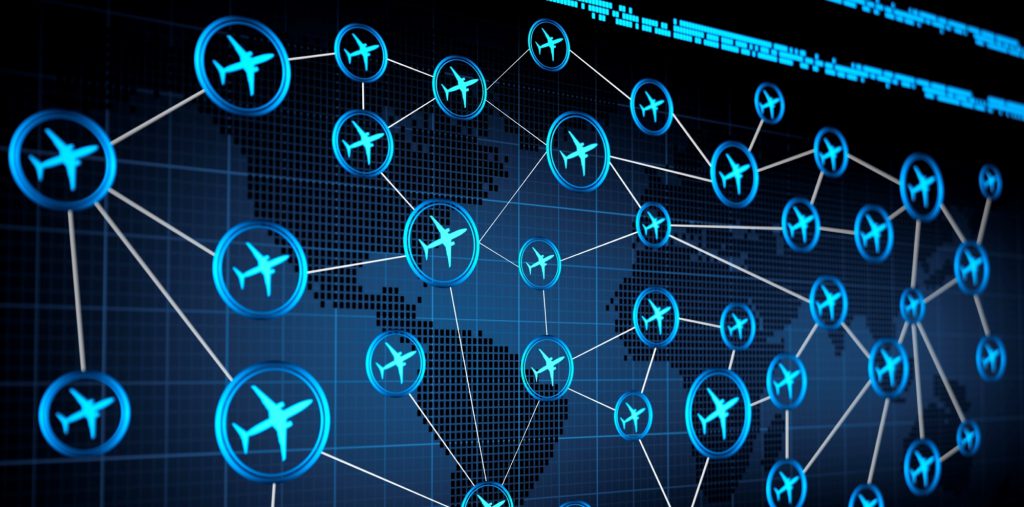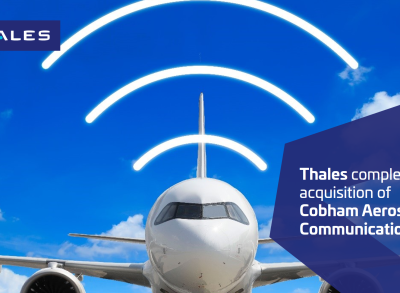Connected and cybersecure aircraft: how to tackle the challenge?

From app checking in to in-flight purchases with personal devices, the passenger experience has changed tremendously over the last decade or so. Airlines continue to deliver improved and more efficient services for the benefit of their customers and their stakeholders. Carriers have also embraced this connected environment by digitalizing their processes. Those inter-connected systems have increased surface exposure to cyber-attack. Therefore understanding and addressing cyber security in this digital environment is one of the major challenges airlines will have to deal with for the foreseeable future.
Another challenge is the rapid changes of the cyber ecosystem with a growing exposure to threats, whether the motive is terrorism, hacktivism with political objectives or criminal with financial goals, new groups of attackers are arising with constantly renewed methods and enhanced capabilities. This requires airlines to rapidly implement effective and adaptive solutions to counter ‘traditional’ threats such as million dollar losses through phishing attacks to more complex attacks against on-board systems.
Additionally, the extension of airline information systems up to the “connected” aircraft is bringing also new challenges, both on the ground and in the air. Though commercial aviation remains extremely secure, connected aircraft are an integrated part of the airlines’ digitalization system and are potentially exposed to malicious hackers. To maintain security, carriers must ensure that they have a comprehensive picture of threats and vulnerabilities, in order to set up concrete action plans to counter these new threats.
What makes Thales unique in cyber-security?
Cyber-security is part of the Thales DNA as we secure 80% of the world’s bank transactions and count 9 out 10 internet giants. These references, built by our 2,000 cybersecurity experts and 5,000 IT specialists, have developed Thales’s leading position in cyber-security. With three cyber-security operations centers (SOC) and security support in more than 50 countries, we have teams close to our customers everywhere in the world on hand to help them day and night.
By combining cyber-security edge with our expertise of airlines’ key operations, from flight operations to maintenance operation and air traffic management, Thales is in a unique position to support its airline customers to tackle the cyber-security challenge.
What do you propose to airlines seeking to tackle cyber treats?
Thales gathers cyber expertise, aircraft systems and solutions proficiency and in-depth knowledge of airline end-to-end operations.
Our Avio portfolio comprises a comprehensive cyber services that range from anticipation of cyber-threats with independent security risk assessments or audits, up to cyber-reaction and response capacities through our security operation centers (SOC) and Rapid Response Teams.
Our day-to-day activities with aviation regulation agencies and governmental agencies provide us with a unique position to anticipate upcoming cyber-security requirements, hence we offer support to our customers on cyber-governance and compliance initiatives, and gap analysis.
We also provide specific cyber security training starting from cyber awareness to address the entire community of an airline to specific cyber training of key airline systems on-board and around the aircraft.
Among our projects this year, we have conducted a risk assessment for a major European airline, focusing on the air-to-ground communication systems and processes for the A350. The assessment covered many of the key aircraft and ground systems to identify practical recommendations aimed at significantly reducing risks.
Our customers are all very different: different countries, sizes, operating models, organization, business objectives and stakeholders. As a result they have varying priorities for their cyber activities. And we pride ourselves in being able to adapt our list activities in accordance with their individual needs and concerns. Cyber-security is not a state, it is a journey and we are continually meeting with airlines around the world to further understand changing circumstances, environments and requirements, and to actively tailor our services accordingly to reflect up-to-date industry and individual business needs.
With three cyber-security operations centers (SOC) and security support in more than 50 countries, we have teams close to our customers everywhere in the world on hand to help them day and night.”
Thales secures 80% of the world’s bank transactions
Cybersecurity Experts
IT Specialists
Stay connected with us...
Find us on Twitter @ThalesAerospace, on our official Youtube channel Thales Aerospace and on LinkedIn Thales Aerospace.




